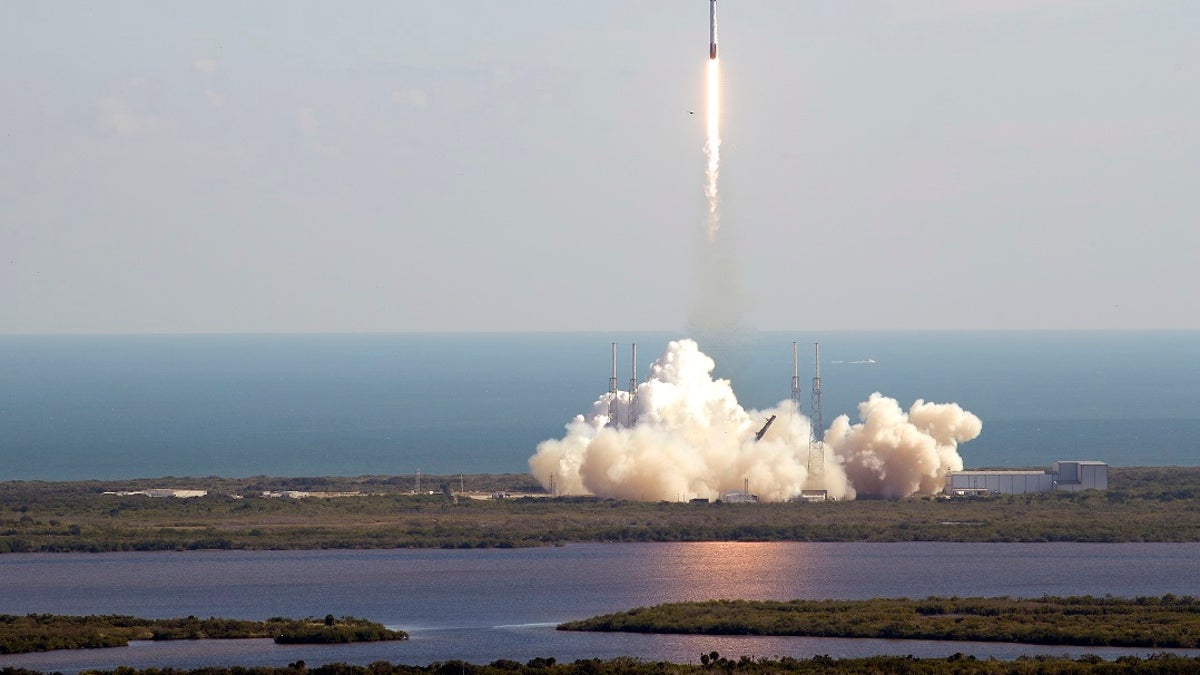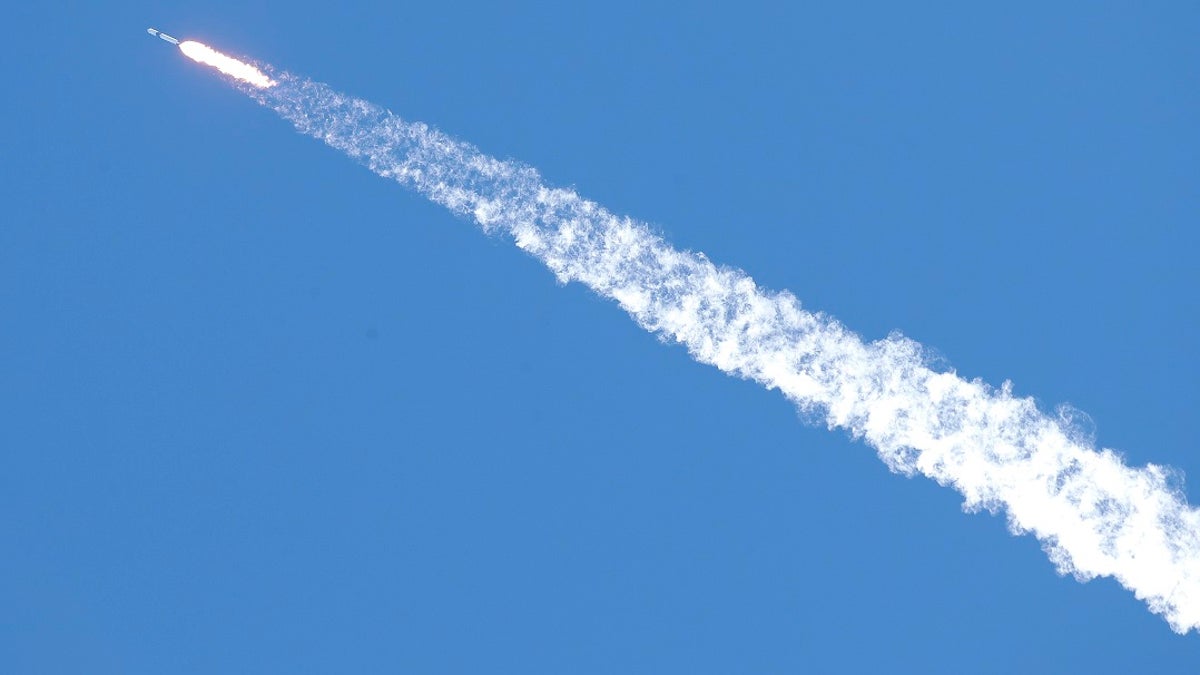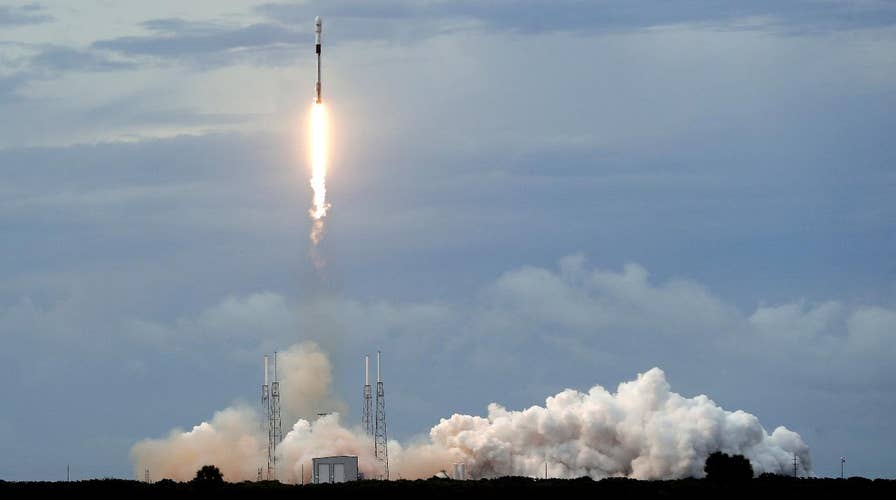SpaceX launches its Falcon 9 rocket
FBN's Cheryl Casone on SpaceX launching its Falcon 9 rocket into orbit in Cape Canaveral, Florida.
SpaceX launched a 3-ton cargo payload to the International Space Station (ISS) on Thursday, which included barley grains for a beer experiment, mice for muscle-building research and a robot designed to show empathy.
The Falcon 9 rocket carrying the recycled Dragon capsule filled with the goodies lifted off from Cape Canaveral, Fla., around 12:30 p.m. The capsule is expected to arrive at the station housing six astronauts -- three Americans, two Russians and one Italian -- on Sunday.

A Falcon 9 SpaceX rocket on a resupply mission to the International Space Station lifts off from Space Launch Complex 40 at Cape Canaveral Air Force Station in Cape Canaveral, Fla., on Thursday. (AP Photo/John Raoux)
SpaceX recovered the new booster on a barge just off the coast in the Atlantic several minutes following liftoff so that it could be reused. SpaceX employees in Southern California cheered when the booster landed, and again a few minutes later when the capsule reached orbit.
Thursday's trip is SpaceX's 19th supply run for NASA. The mission was delayed a day because of high winds. The company posted a video to its Twitter account showing the capsule separating from the rocket.
NASA PICKS SPACEX, BLUE ORIGIN AND MORE FOR PRIVATE MOON LANDER PROJECT
The shipment includes 40 mice -- all adolescent females with black fur. Eight have twice the muscle mass of ordinary mice.
Researchers aboard the space station plan to build up the muscle and bone of the regular mice, said the experiment’s chief scientist Se-Jin Lee of the University of Connecticut and Jackson Laboratory in Farmington, Conn. He said it could one day help astronauts stay fit on long space trips.
The barley grains were sent by Anheuser-Busch so the team can evaluate how seeds germinate in a space environment.

A Falcon 9 SpaceX rocket on a resupply mission to the International Space Station soars skyward after liftoff from Space Launch Complex 40 at Cape Canaveral. (AP Photo/John Raoux)
A 3D-printed robot head with artificial intelligence (AI) named Cimon will also make the trip. Cimon, pronounced "Simon," will spend up to three years at the space station -- three times longer than its predecessor.
The goal will be to provide astronauts with robotic helpers, IBM's Matthias Biniok told The Associated Press.
The Dragon is expected to remain attached to the space station until Jan. 6. It will splash into the Pacific Ocean carrying gear and scientific samples when it returns to Earth, Space.com reported.










































